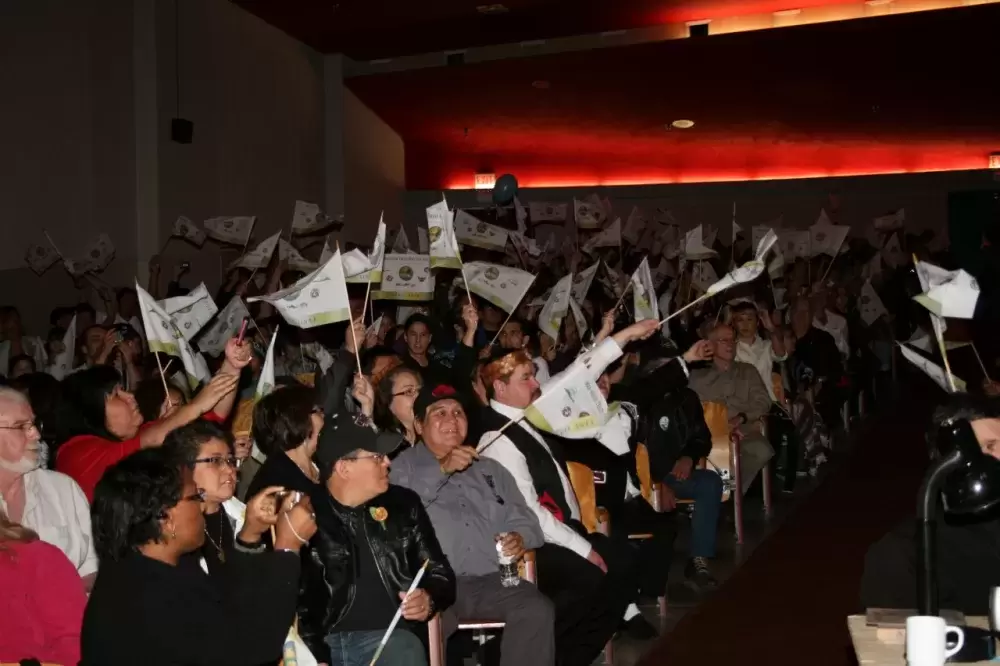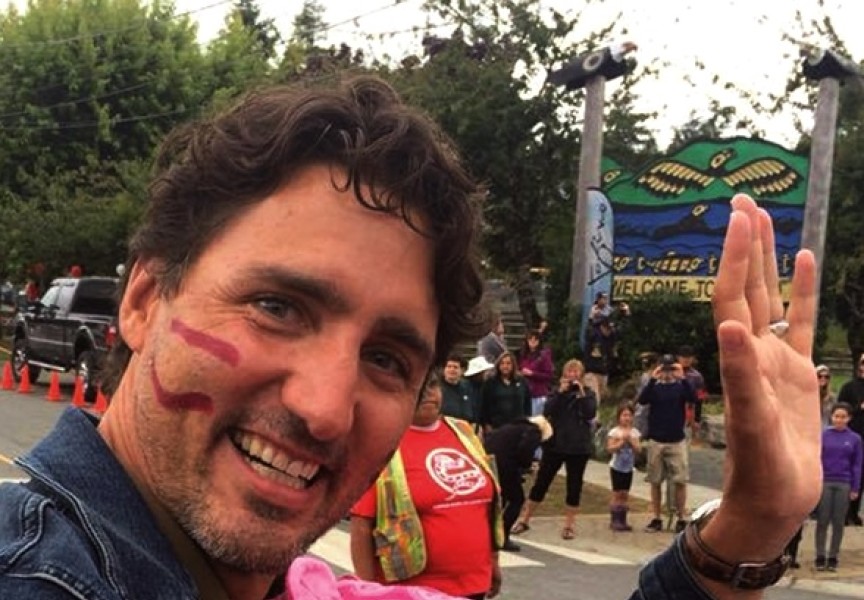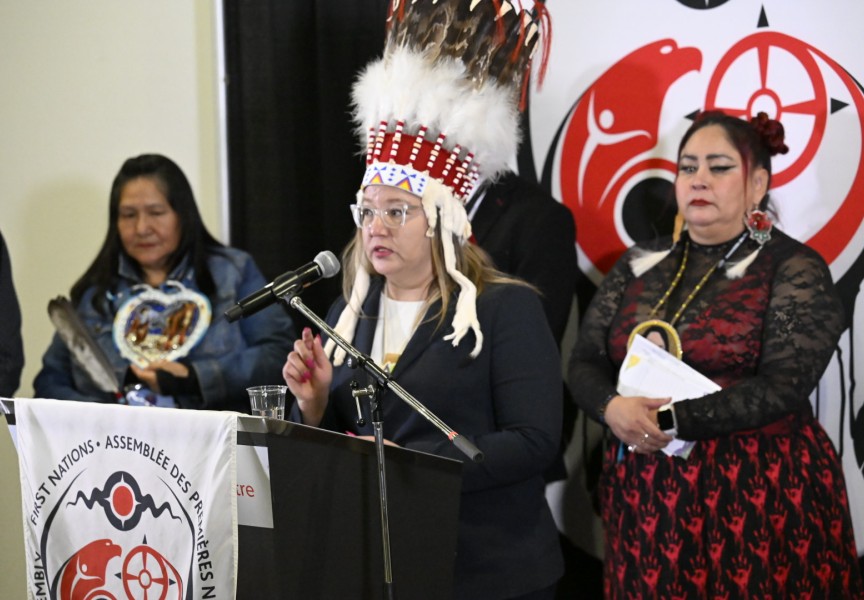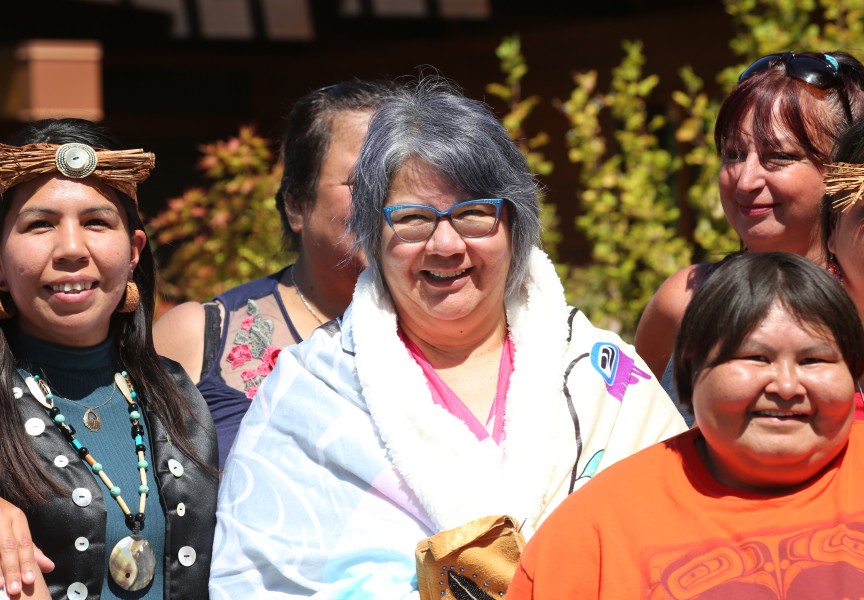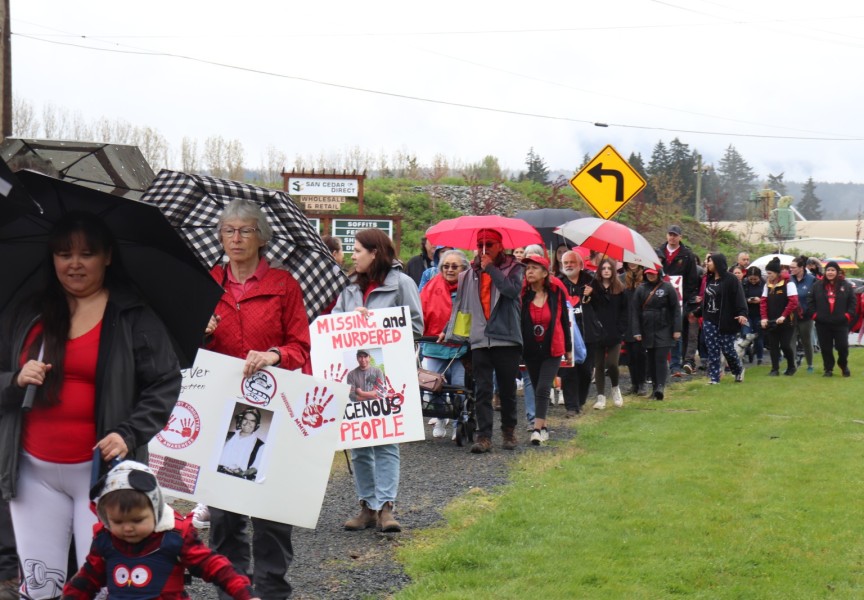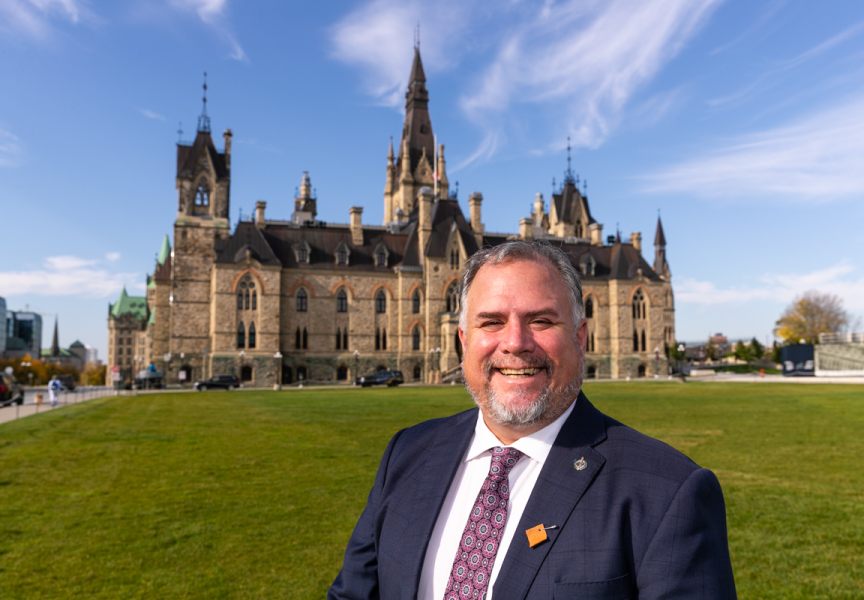The news came when the federal government announced its Budget 2019: Investing in the Middle Class to Grow Canada’s Economy. Canada committed to eliminating the outstanding comprehensive claim negotiation loan debts for all First Nations in Canada, totalling $1.4 billion, and to repay Indigenous governments that have already paid these loans back.
The federal government has also adopted a grant-based system, which does not require repayment, to fund future negotiations with the government.
The Huu-ay-aht, Ka:’yu:’k’t’h’/Che:k’tles7et’h’, Toquaht, Uchucklesaht and Yuułuʔiłʔatḥ First Nations all implemented the Maa-nulth Final Agreement that was signed by chiefs representing the five nations, as well as federal and provincial ministers, on April 1, 2011.
The agreement details a 10-year loan repayment plan, running from April 1, 2011 to 2020. The document lists annual repayments of $546,224 from Huu-ay-aht, $446,371 from Ka:'yu:k't'h'/Che:k'tles7et'h', $510,175 from Yuułuʔiłʔatḥ, $216,726 from Uchucklesaht and $173,534 from the Toquaht Nation.
The BC treaty negotiations process is voluntary and open to all First Nations in British Columbia, according to the BC Treaty Commission. There are 65 self-determining First Nations - representing over half of all Indian Act bands in B.C. - that are participating in, or have completed treaties through the negotiation process.
“All the nations that are in the negotiation process, whether they’re actively negotiating or not, will receive loan forgiveness,” said Celeste Haldane, BC Treaty Commission chief commissioner.
Haldane said the loan forgiveness and reimbursements will allow First Nations to invest back into their communities through economic development initiatives, infrastructure or governance.
“I think about language revitalization, that is a really important aspect and something that we need to be really focused on given the fact that we are losing Indigenous languages at a high rate. I see that as being a positive investment and way to invest in securing our future,” Haldane said. “What I think is quite interesting about all this, is it puts the nation back in the driver seat when they actually want to look at how they want to prioritize community initiatives and that comes down to the ability to be able to self-govern and to be self-determining, which I think is extremely important.”
The Huu-ay-aht First Nations will receive nearly $5 million from the federal government in returned loan payments over the next five years and close to half a million in debt will be forgiven.
“It is with sincere appreciation that Huu-ay-aht First Nations applaud Canada for correcting a long-time policy of making First Nations pay for their new relationship with British Columbia and Canada,” said former B.C. Treaty Commissioner and Huu-ay-aht Ḥaw̓iiḥ Tom Happynook in a news release. “This new federal approach to treaty negotiations in B.C. is a welcome policy change and can in its simplicity create a much better environment to negotiate a Modern-Day Comprehensive Treaty,”
Huu-ay-aht’s Chief Councillor Robert J. Dennis Sr. said in a news release he finds it reassuring that even with the difficulties COVID-19 has created, the Government of Canada is still committed to economic reconciliation efforts with First Nations communities. The Huu-ay-aht plans to invest in governance, infrastructure and economic development to ensure the nation benefits from the funds they will receive over the next five years.
The Uchucklesaht Tribe will be reimbursed about $2.2 million from the government, said Uchucklesaht Tribe Government CAO and director of finance Scott Coulson.
“Nothing is forgiven because we had paid back our entire loan…it was just a payback,” Coulson said. “The funds are being paid back over seven or eight years so they’re going toward our general budget and nothing is being identified for them. It’s just a general revenue.”
Coulson said it wasn’t fair for the government to force First Nations to go into debt for the treaty process. The loan repayments are a positive step taken by Ottawa to reconcile.
“I think Trudeau’s government stepped up and did the right thing,” he said.
Charles McCarthy, president of the Yuułuʔiłʔatḥ First Nation, said he couldn’t recall the exact amount the nation would be reimbursed for treaty loans, but that the money will go back into a trust fund.
He said it means a lot to the nation that the government has agreed to repay and forgive the loan payments.
“I was against funding it out of our pockets, it was a huge cost. Ours might not have been as much cost as other nations but there was a lot of money and research and a lot of our people were attending those meetings,” McCarthy said. “It was really hard to accept that we were actually having to pay all of that money back if Canada wanted certainty.”
The Toquaht First Nation didn’t disclose how much they would be receiving from the federal government in loan repayments or debt forgiveness, but Tayii Ḥaʔw̓ił Anne Mack said the nation worked tirelessly for more than 20 years to negotiate a treaty with Canada and B.C.
“Like other nations, we were made to borrow money from Canada to carry out this work, money that we have been paying back since the Maa-nulth Treaty’s effective date of April 1, 2011,” Mack said. “Servicing this debt has been a burden on our small operating budget. We are very pleased with Canada’s decision to forgive any outstanding dept while refunding treaty nations that have already repaid their negotiation loan.”
Ka:’yu:’k’t’h’/Che:k’tles7et’h’ did not respond to an interview request.
Haldane said the government’s decision to repay and forgive treaty loans is a testament to the commitment of reconciliation by the federal and provincial governments.
“There never should have been loans in the beginning, that’s always been an absurd structure,” Haldane said, “From the outset, First Nation leaders, communities and treaty negotiation tables have always said that it was unfair and I think we’re now in a place where they’re kind of righting the wrongs when it comes to loans.”
Loan forgiveness also applies to several other Nuu-chah-nulth nations that have invested in treaty negotiations, including Ditidaht, Pacheedaht, Hupacasath and Tla-o-qui-aht. The Ditidaht and Pacheedaht Agreement in Principle was signed on June 28, 2019 and the parties are in Stage 5 of negotiations to conclude treaty. The Hupacasath and Tla-o-qui-aht are currently in Stage 4 of the negotiating process, which entails working on an Agreement in Principle.

